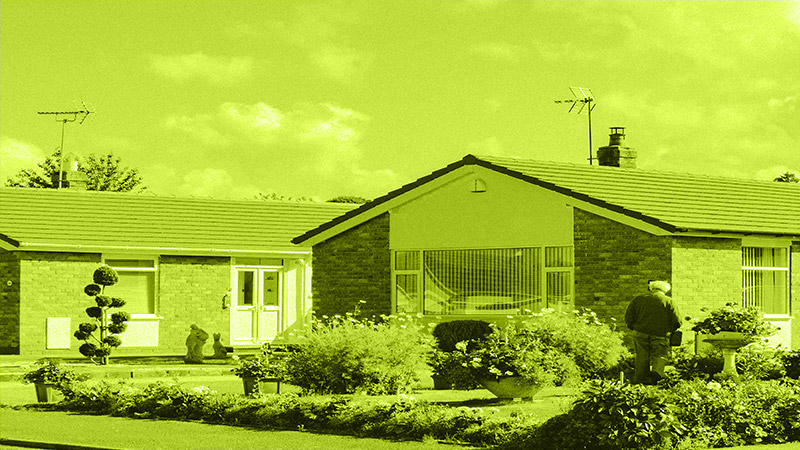According to Statista, the distribution of mortgages in the UK in 2022 show that only 4.1% of properties bought with a mortgage are owned by people 65 years of age and older.
The same statistics show the following:
- 61.7% of homeowners 65+ bought the property outright
- In the age group of 25 to 34, only 1.5% bought the property outright while 22.5% bought property with a mortgage
This certainly shows that in the younger age brackets, the ability to afford to pay off an entire mortgage immediately is less likely.
It might seem like a brilliant idea to pay your UK mortgage early.
After all, you won’t be forking out cash every month.
But the question begs to be answered; is it a good idea to pay your mortgage early?
Below is everything you need to know to make a more informed decision.
Advantages of Paying Off Your UK Mortgage Early
Let’s first get to the good stuff.
If you can pay off your mortgage early, you might have come into an inheritance, earned a decent wage that’s allowed you to save, or made a lump sum through investment.
Regardless of the ‘how,’ you can now settle the outstanding amount on your home loan.
What are the advantages? We’ll tell you:
1. Get Out of Excess Interest
Along with the amount you borrow to pay for your UK home, you’ll have interest to pay. And in most instances, the interest amount is sizeable.
Regardless of the type of mortgage you opt for, the longer the repayment terms are, the more interest you’ll pay.
Paying your mortgage off earlier than anticipated will reduce your interest costs by thousands of pounds.
However, remember that some mortgage companies in the UK penalize homeowners for paying off their mortgage early due to the interest (income) they will lose.
2. Living Without Debt
Most people’s UK home loan or mortgage is their biggest debt.
It’s likely your biggest monthly instalments and comes with the heaviest consequences if you miss payments throughout the year.
Clearing your mortgage could mean you have more cash to spend on other expenses.
The money you save on your mortgage could buy you that holiday you’ve always dreamt of, or help you refurnish your home.
3. You’ll Have a Genuine Place to Call Home
Once your mortgage is settled, the property is officially yours to do with whatever you want.
The terms restricting whether you can rent, sell, or give the property away all fall away, and you’ll have a place to call home – genuinely.
Disadvantages of Paying Off Your UK Home Loan Early
Paying your UK mortgage off early comes with definite benefits, but what are the downsides?
How to handle all financial situations comes down to an individual’s circumstances.
Financial decisions have advantages and disadvantages, so it requires a bit of forethought before deciding what to do.
With that in mind, here are the common drawbacks of paying off your mortgage early.
Related mortgages guides:
- What to do if your mortgage expires.
- Disadvantages of paying your mortgage off.
- Best mortgage brokers in the UK.
- Should you pay off your mortgage early?
- 50-year mortgages UK.
1. Sneaky Early Settlement Penalties
Not everyone will have the opportunity to settle their UK mortgage early, so the idea of early settlement fees probably doesn’t come up.
These fees may be called ERC (early repayment charges) or “exit fees” on your mortgage contract.
When granting your mortgage, the lender carefully calculates their portion of income on the deal through the many months of interest charges that span the length of your loan contract.
When you cut the deal early and settle, they’ll lose out on all those months of income.
Naturally, everyone has bills to pay and wants their piece of the pie, so they mitigate the loss by imposing penalties on those who try to pay off their UK home mortgage early.
2. Losing Out on Tax and Interest Benefits
If your savings are currently earning interest, you should check if your interest is more than the amount you’re paying towards your home loan each month.
It may be beneficial to leave your savings in the account, accruing interest to make a profit (the difference between the interest you’re earning and what you’re paying towards your mortgage).
You could use the interest on your savings to pay your monthly mortgage instalments. Then there’s your pension to think about.
Depending on your age and pension pot, you may benefit more from contributing funds in your savings to your retirement instead of paying down your mortgage.
While it’s not always the case, there are scenarios where the tax advantage of doing so would be more beneficial.
3. Overlooking the Benefits of Prioritising Your Higher Interest Borrowing
Many people will be in multiple forms of debt, not just with their home loan.
If you compare your debt accounts carefully, you may find that you have other forms of debt with higher interest charges attached.
Car finance and credit cards typically come with higher interest rates attached.
You may find it more beneficial to pay your smaller debts off that have more significant interest rates than paying off your mortgage early.
You’ll then have extra monthly cash to pay down your mortgage.
I Want to Pay Off My UK Mortgage Early, How Can I Do That?
If you want to pay your mortgage off early, here are a few ways you can do that:
Full Lump Sum Payment of Your Mortgage
If you happen to have a sudden influx of cash and have the full mortgage amount available, remember to check with the lender what their penalties and early settlement fees are, as this will increase the amount you’ll have to pay over.
A full lump sum is often the easiest way to pay your mortgage early.
Remortgaging
This option is slightly different, as you won’t be free from your mortgage.
That said, when you remortgage your existing loan, you can negotiate better terms that could contribute to paying off your outstanding mortgage amount quicker.
Remortgaging can help you do one of two things as follows:
• Overpay your mortgage
If you choose to overpay your mortgage by 10% of the loan amount each year, in addition to your current instalments, you won’t incur fees or charges (this is only available with some mortgage providers).
This will help you settle your home loan sooner than anticipated.
• Offset your savings
Offset mortgages let homeowners host their savings accounts with their mortgage provider.
In such instances, you can offset your savings balance against the interest charged on your mortgage.
When your interest is paid faster with your savings, you’ll pay more into your loan balance each month.
Remember that remortgaging comes with fees, so you’ll need to calculate if this is the right option.
Disadvantages And Advantages Of Paying Your Mortgage Off Conclusion
Whether you should pay your mortgage early in the UK will come down to your unique financial situation.
Take the time to consider your finances and do the calculations before making any big financial decisions.
It’s always recommended to consult with a mortgage broker, so you’re assured of making a decision will all the costs and terms/conditions in mind.
Call us today on 03330 906 030 or contact us to speak to one of our friendly advisors.
 03330906030
03330906030










